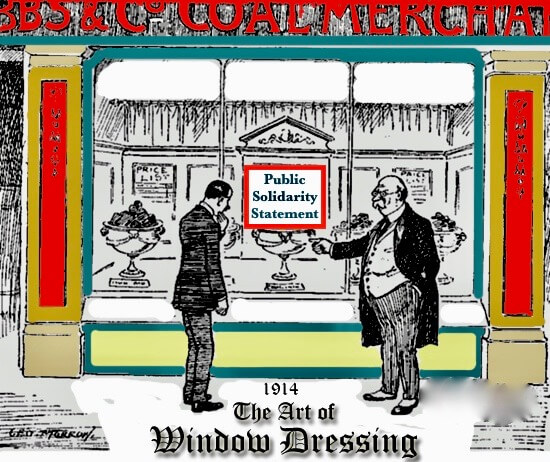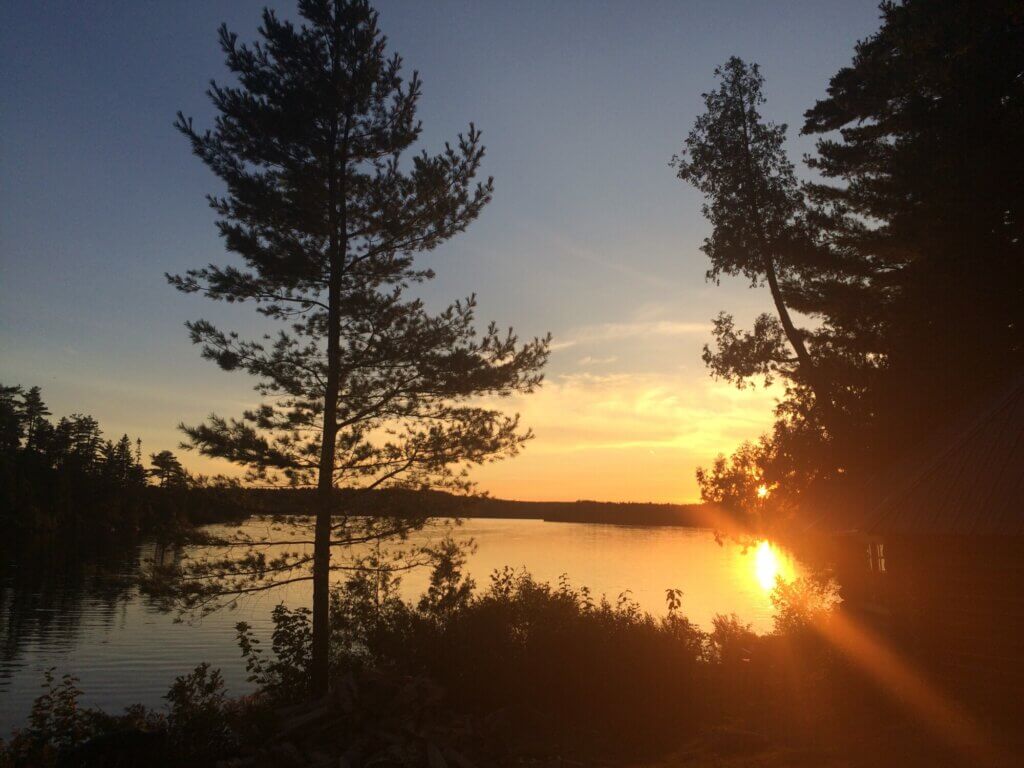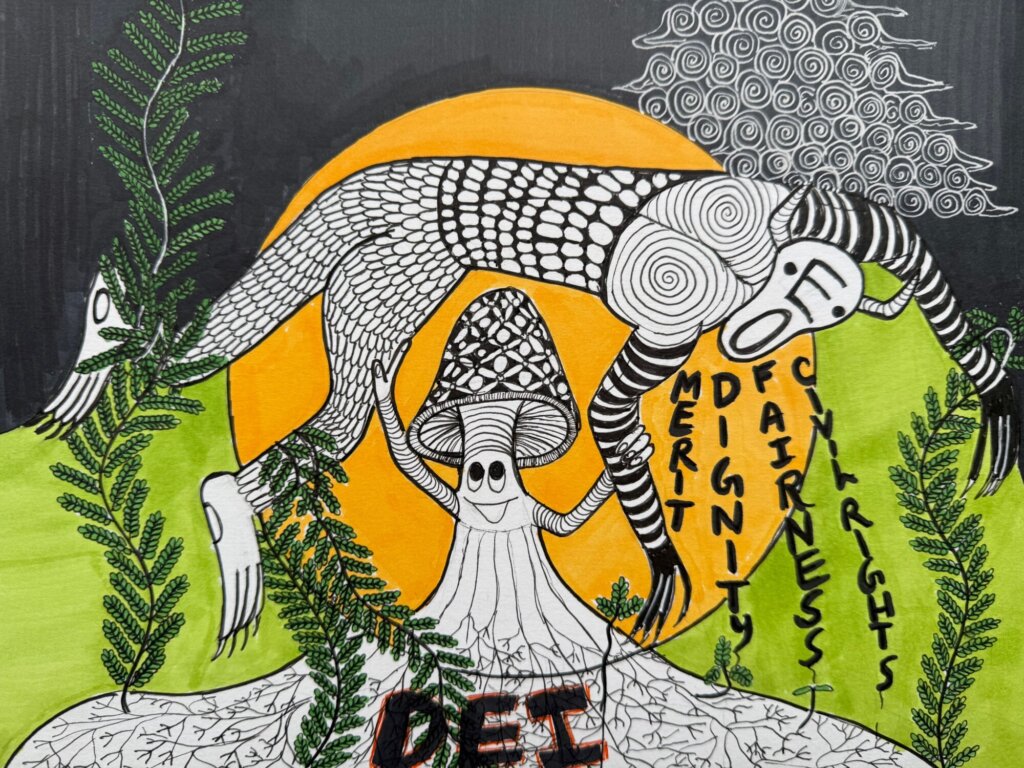By: Ava Holliday and Aparna Rajagopal
In her essay “Poetry is not a Luxury,” Audre Lorde wrote “there are no new ideas-there are only new ways of making them felt.” (Sister Outsider, p. 39). Over the past week we have heard people speak their truths and share ideas, and we will likely continue to. We are listening, learning, and feeling right along side many people. We don’t have any new ideas, we but hope with this blog post to add a lens to make existing ideas land for you in a different way, as many are trying to understand how to engage in this moment.
We want to talk about your public statements condemning violence and racism and expressing solidarity. Because there’s a statement. And then there’s the work. As our colleague Teresa Baker, founder of the CEO Pledge points out in the wake of companies rushing to sign the pledge, “We welcome companies ready to do the work, but we will not allow the pledge to be used as a temporary fix. This is a long term commitment.”
Similar to Teresa, in the last few days, we have received a number of emails from folks asking if and how they should make a public statement related to police brutality and anti-Black racism. Our response has been, “yes, make a statement. And then do the work.” We recently read Garrett Bucks’ newsletter (strongly recommended for white folks) and he noted that, “these moments do matter, but so too do a million other moments.” This is to say that the outrage and pain you’re seeing right now from Black folks isn’t just a flash in the pan, but an amalgamation of 400+ years of anti-Black racism. So, the question is, “does a statement serve as a right-sized reaction compared to the gravity of the situation, or is it just a flash in the pan?” This isn’t to say you shouldn’t make a statement – instead, this is a big, “yes, and” situation. Yes, make a statement. And do the work. Do not mistake the statement for the work. So, here are a few thoughts to ponder while creating a statement and then committing to the work:
- Don’t only decry the racial harassment of Christian Cooper or the murder of Amaud Arbery because birding and running feel closer to your mission. Racial injustice transcends missions. Remember that to be able to bird (#ChristianCooper), you need to be able to be outside without fear for your life (#AhmaudArbery) and return to home without fearing for your life (#BreonnaTaylor), and to be able to be outside, you need to be able to breathe (#GeorgeFloyd). It is all connected.
- Go beyond public condemnation and articulate your actual commitments to the work of specifically addressing anti-Black racism (not racism generally) – there are many ways this can happen and will depend on who you are as an organization.
- Be clear about your statement that this is an anti-Black issue. Yes, racism across all people of color exists, and we should address that, too. We also need to directly and explicitly address anti-Black racism (within white and non-Black POC communities).
- Please don’t ask Black staff or colleagues what to do, and definitely don’t ask them to write your statement for you unless they offer. It is your job. Step into the power you already have as a white-led organization. Do create space for Black colleagues to do whatever they need to do right now. It’s going to look different for everyone, but be prepared to be flexible and step in where needed.
- Don’t police (yup, using that intentionally) the way Black people are expressing themselves. If you’re not a Black person, this is a space in which white opinion just doesn’t hold much water. That’s a tough pill for a lot of white people to swallow – that our opinion doesn’t matter in this realm – but that’s small potatoes compared to when your life doesn’t matter.
- Your public statement will not be perfect and it’s not going to resonate with everyone. And that’s ok. Don’t get mired down in the language and semantics. We’ve seen way too many organizations get stuck in wordsmithing mode as a distraction from actually doing the work.
- Finally, as you look out at the ecosystem of partners and find yourself wondering why someone isn’t saying something on social media, remember that just because it’s not on social media doesn’t mean a person or organization is not doing the work. Resist the temptation to engage in #rigidradicalism and police fellow organization’s social media presence when they may be doing the work in ways that aren’t visible to you.
So, what does the actual work look like? The reality is that it can take many different shapes though one thing should remain constant: this moment should change you and your organization permanently and for the better. Moving forward and looking into the future, let this moment in time be a moment in which you deepen your commitment to addressing anti-Black racism. Whatever questions and ideas and actions you’re taking now, keep that as part of your daily practice. The following is an incomplete list of actions that organizations and conservation movement leaders can take:
- Ask Black communities with whom you have an existing relationship with what they need without expectation that they have the capacity to get back to you. One of our clients is taking the time to ask Black and indigenous colleagues what they need before taking local action to ensure their organizational action aligns with actual need. Tressie McMillan Cottom asked, in the context of Covid-19, “Are people asking you for the aid you are giving them?” This sentiment applies here too.
- We sound like a broken record here, but we say it because it’s true: connect the dots. Conservation and environmental history aren’t devoid of systemic oppression, including anti-Black racism.
- If you’re partnering with Black communities, pay them for their work. This is so simple and straight forward, but time and time again we see Black folks being asked to contribute their ideas, voices, and labor without compensation. If you make a statement about the importance of Black voices, then pay them.
- Create policies within your organization to clearly and decisively address racial harassment. And then actually enforce those policies.
- If you’re a funder or in any position to give, give to Black-led organizations and fund organizations that have made a commitment to taking meaningful actions related to anti-oppression work. PGM ONE just announced a fund for Black joy and you can contribute here.
- If you’re a land trust, give land back to Black farmers and caretakers. Check out the Northeast Farmers of Color Land Trust for some great ideas and resources.
- If you’re a policy-focused organization, be sure to advocate for inclusive public policy as well as policy that directly bolsters and supports the needs of BIPOC communities.
- If you’re an outdoor education organization, add an anti-racist lens to your curriculum. We shouldn’t just be teaching young people about racism in times of crisis. We should be building their skills to proactively address it.
- If you’re in the outdoor industry, listen to Black folks who have been asking for you to see them for years.
This list could go on for a long time, but we’ll stop there because it’s late and we’ve got work to do too.
References and an assortment of resources that have been helpful for us:



